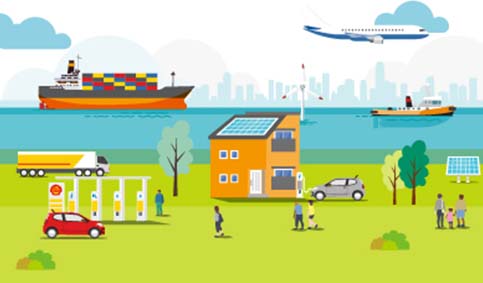Canada
Employees
3,371
Total tax contribution
$4,434,636,090
Taxes borne
$54,844,197
Taxes collected
$4,379,791,894
-
Third-party revenues
$18,073,139,590
-
Related-party revenues
$18,986,391,538
-
Total revenues
$37,059,531,128
-
Profit before tax
$2,802,534,120
-
Corporate income tax paid
$38,878,011
-
Corporate income tax accrued
$197,815,402
-
Stated capital
$49,858,308,287
-
Accumulated earnings
$(2,705,218,973)
-
Tangible assets
$17,727,943,996
-
Other payments to governments
$48,790,014
Shell's footprint
Shell has been operating in Canada since 1911. Shell in Canada's downstream business is anchored in its Scotford Energy and Chemicals Park in Alberta. Scotford is a large refining and petrochemical facility that includes a bitumen upgrader, an oil refinery, a chemical plant and the Quest carbon capture and storage facility. It has a refining capacity (upgrader and refinery) of more than 430,000 barrels per day. Shell's Sarnia Manufacturing Centre in Ontario includes a refinery and chemical plant and has a daily processing capacity of 85,000 barrels of crude oil. Shell also has trading and supply, aviation, sulphur, retail and lubricants businesses, among others. In British Columbia, we produce natural gas at our Groundbirch asset, which has around 479 producing wells and four gas plants. Shell also has a 40% interest in the LNG Canada joint venture, which is in the construction phase.
Country financial analysis
The statutory corporate income tax rate for Shell in Canada was 24.09% in 2022. This is a combination of the federal tax rate of 15% and various provincial rates. The combined provincial rate is based on the annual allocation of salaries and revenue to each of the provinces in which Shell Canada does business. The difference between the statutory rate and actual taxes accrued or paid is because capital expenditures result in a deduction for tax depreciation several years in advance of the time at which revenue from production is earned. This means tax losses are generated early in a project, and can be used against the realisation of future revenues. The variation between the tax accrued and the tax paid is primarily due to the timing of when tax payments are due to governments or alternatively accrued for accounting purposes. The revenue increase in 2022 was mainly because of higher oil and gas prices. Our Payments to Governments Report for 2022 shows that Shell paid around $48.8 million in royalties and fees.
Read more in Total tax contribution and in Payments to Governments Report(shell.com/payments-to-governments).










